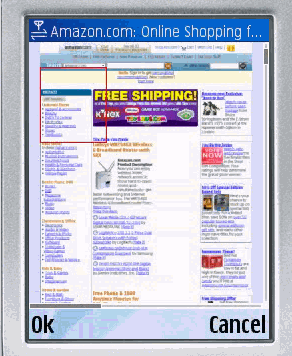The recent announcement by Google around the gPhone has been portrayed by the press as a game breaking move. That somehow a new free OS that is customized for cell-phones somehow, once again, changes everything. And that more, to the point, that was Google’s plan.
I disagree. In fact, I believe Google had grander ambitions, those ambitions proved too costly, and that the recent announcement was an admission that those plans were shelved. And that Google was signaling to the cell phone carriers that they were going to play by their rules.
Hence, the blog title: Google capitulation?
Here’s what I think:
Google’s management team correctly observed that the future of search was search on the cell phone. And that location based search on a cell phone was going to be a tremendous revenue opportunity.
The challenge was that the current cell phone carriers act as tax men. You can’t sell a service without putting the service on a cell phone that the carrier sells. And the cell phone carriers themselves had ambitions on how exactly those advertising services were going to be delivered.
But why would the carriers be any different than MS and Yahoo in their ability to compete with search?
Unlike Microsoft and Yahoo, the cell phone carriers thanks to their connectivity to customers through Yellowbook, and the fact that they sell phone numbers, have the sales force, and the business process to create a real alternative local search advertising market.
So if you’re Google, and you have more money than God, you think outside of the box. If the problem is that the cell phone carriers control access, you need to create a new network that does not have the cell phone carriers acting as the gatekeepers.
To do that Google needed three pieces:
- A network that could carry phone calls that was not owned by the cell phone carriers.
- A set of devices that would connect to that network
- A set of compelling services that would cause people to select that network.
So what was the plan?
Let’s look at them in reverse order. For (3) Google was building it’s own applications, and then buying startups that offered innovative cell phone services. For (2) Google was working on an OS and reference platform. And for (1) Google had a three pronged strategy. The first was to build Metro WiFi like they did in Mountain View and San Francisco. The second was to bid on the wireless spectrum and either build or lure someone to build the network. Third was to create a regulatory environment that would allow other virtual carriers to build their own networks.
I believe that the cost of (1) became prohibitive along two dimensions. The first was the sheer dollar cost to build. The second was that while Google was building out it’s competitive network, the existing cell phone carriers would treat Google and their software as enemy number one. In many ways, the Google move might force the carriers to embrace Microsoft and Yahoo. The potential loss of revenue while the network was being built out and the cost of the network just made the strategy impractical.
Confronted with this reality, Google scaled back it’s ambitions, and like a researcher who has failed to prove something significant, they looked for pieces of that strategy that were still valuable and tried to get some value from them.
And that’s what the gPhone announcement is about. Unlike every Google announcement in the past, Google was announcing vapor. Nothing real, no product, just a statement that the grand cell phone strategy was about releasing a free OS to cell phone carriers.
With that announcement Google was signaling to the cell phone carriers that their plan was to play by their rules. Like Microsoft, Blackberry, Nokia, Palm and Apple they were going to release an OS, that the handset providers could port to their devices, that the cell phone carriers could certify and that Google would continue to be a software provider into those walled gardens.
Google was no longer planning to build an open, unwalled garden.
Google capitulated to the existing market reality. Perhaps we are seeing the limits to even their ambitions?

